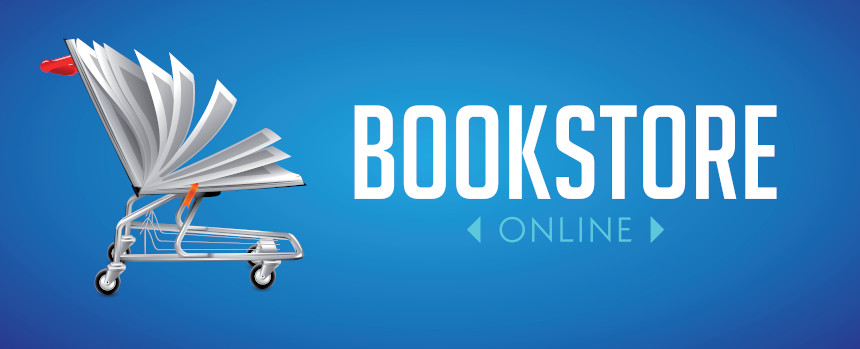
How to Open a Bookstore: A Comprehensive Guide
Congratulations! By choosing to research how to open a bookstore, you've taken the major first step toward opening one of your own. Owning a bookstore offers a unique and secure opportunity to achieve financial independence while sharing your passion for the printed word. This guide will provide a realistic look at all that goes into creating a bookstore, but remember, it doesn't need to be accomplished all at once. There are now more resources than ever to help you streamline the most data-intensive processes required to effectively manage physical and eCommerce bookstores. If you're passionate and leverage the best digital bookstore resources available, you'll have no issue being successful. While we've covered the general procedure for opening an online bookstore before, this guide will take you through a more in-depth process to help you do so with maximum clarity.
The Current Landscape of Bookstores
Bookstores have had a somewhat volatile history, but by now, it's largely evened out. E-readers have found their place alongside printed publications, and the massive spike in eCommerce has settled into greater harmony with physical storefronts. As a result, the market landscape for American and international bookstores is quite solid, and it appears to increase even further throughout the 2020s.
Bookselling Industry Overview
In 2022, the American bookstore market rose by 4%, reaching just under $10 billion. Though the market had declined by about the same annual rate as the five previous years, this metric fails to reveal specific other telling statistics.
Specifically, the market for book sales in 2022 is slated to reach $29.57 billion, which is the majority of the estimated $111 billion global in the same year. By 2027, that figure should reach $124.9 billion, showing that bookstores are not "dying."
Craft a business plan
The first tangible step to opening a bookstore is spending quality time developing a business plan. The most solid business plan will establish clarity on the following elements:
- Mission statement
- Business model
- Target markets
- Marketing Plan
- Business goals
- Location
- Financing
- Operations
- Employees
- Lifestyle design
The contents of your bookstore's business plan should be as accurate, attractive, and user-friendly as possible, using relevant graphs and tables to present data more clearly. The Small Business Association offers business plan templates to help you establish a solid, professional foundation. Don't be afraid to learn more about each topic as you go. It's okay to leave space in your business plan for additions as you acquire new insights.
Note that if you're seeking investments, it's not unheard of to have multiple business plans framed to suit the interests of those particular investors. Be open to revisions to arrive at the best form, depending on whom you need to share it with.
Consider the costs of opening a bookstore
Bookstore costs are much higher upfront than recurring operating costs once established. It's important to note, as well, that costs are much lower for online retailers.
A brick-and-mortar bookstore requires contending with your local real estate, and commercial real estate can be very competitive. You'll likely need a real estate agent at some point, so you may as well strike up a relationship with one at the beginning to simplify your search.
Even if you decide to open a physical bookstore, consider leveraging online sales as much as possible. For online bookstores, the equivalent costs are your digital storefront, which is pennies on the dollar. In addition, you'll need to factor in web registration, annual server hosting, and any fees for third-party web services. You'll also need to factor in business tools, such as customer relationship management (CRM), inventory databases, sales software or subscription services.
Inventory is another major ongoing expense that will cost more upfront as you acquire your first large inventory stocks. The market for used books is relatively high. Many bookstores are opportunists, opting to stock a combination of new and used books. If you have an eye for rare books, consider if it's a niche you want to exploit in full.
For both physical and online bookstores, you'll need to pay for warehousing that keeps your products safe and accessible. Online retailers must also secure working capital up front to pay for shipping and labor costs.
If your business plan's finance section is well planned, you'll be able to weather the initial uncertainty with more confidence. Remember you're in a secure market, so focus on things you can control while adding value where it makes sense for your business. This mindset will keep you focused and prevent letting your nerves take over.
New SMB owners are often surprised to learn that the taxes paid to support government benefits programs are enormous on top of base salaries. An annual salary of $35,000 requires the owner to pay upwards of $49,000. The advantage goes to online bookstores managed by a small team, especially if they are partners working for a share of total earnings.
Marketing is also essential. Fortunately, there are more affordable and streamlined marketing platforms than ever (like HubSpot), with some methods being practically free, such as your website or social media pages. Just be sure to optimize them for searchability.
Pick the brain of one of your favorite local businesses or an online business owner you've befriended. Ask them which marketing methods have worked best for them. Whichever you choose, you'll likely need funds upfront to generate your initial buzz.
Establish an LLC
Registering for a Limited Liability Company (LLC) carries several advantages. First, it reduces your tax burden while lowering legal liability and risk, protecting your private assets in the event of bankruptcy. To do this, you'll need a Federal Employer Identification Number (EIN), which distances you from the commercial entities you'll be operating in the legal world.
LLCs are registered at the state level through the Secretary of State's office. Depending on which state you apply in, different states might have different filing requirements and more or less advantageous ongoing requirements. Online retailers may even be able to take their pick and apply where it's most beneficial for them. But look closely at the requirements to ensure you do so correctly.
Naming Your Business
To register your business, you'll need a name. Spend time deciding on a name since this will be the first thing your customers will see when engaging with your business. Your business name should perfectly represent what makes your bookstore unique.
Then, run your top ideas by your peers (or even strangers, for a genuinely unbiased response), and extrapolate how your brand name is likely to go over with the public.
Consider these other factors that could make or break your name:
- Is the correct web domain for your preferred business name available?
- Will the name allow your business to expand into other areas if desired (e.g., local publishing) rather than pigeonhole you?
- Does another business use the name in the book and publication industry? If so, is its pronunciation, spelling, or meaning the same?
Once you're confident you have the best name, the process involves filing for a DBA ("Doing Business As") or a Business Name Registration. Registering your business name allows you to also register for a trademark. A trademark puts you in the position of writing a cease-and-desist letter if another business starts using the same name later.
Find the perfect location
Scouting the right place for your bookstore can be more important than marketing, service, and other factors. Prime business locations essentially double as ongoing top-notch marketing for your brand. Still, you're paying for it in higher rental costs.
If you have multiple locations at your disposal, compare the pros and cons of each site, emphasizing the factors you think will bolster your brand's unique place in the market. For example, bookstores priding themselves on a relaxed, down-to-earth pace may consider a location next to a park. On the other hand, those envisioning hosting large events, whether now or in the future, will need to find a space that could double as a café or meeting hall.
Also, aim your selection according to the lifestyle and habits of the locals. For example, if you're in a dense urban center where parking is a premium, a location that offers easy or ample street parking or even a parking lot would be beneficial.
Open a bank account
Once you have your SoS and EIN registrations in order, opening a business bank account is the next step. Doing so helps simplify your business finances and sets you up to earn business credit, paving the way to generous business loans and credit lines.
It would be best if you resolved to keep your finances separate from your business finances. It's not hard to do, but it's crucial to maintain much of the legal protection you established by registering your LLC. If you anticipate hiring an accountant, you may wish to develop a relationship with one now to get advice on the best business banking accounts in your area.
Secure necessary permits
While there's no specific license for operating a bookstore, most state regulatory agencies require other licenses for conducting general business and other functions. Where relevant, things such as collecting sales tax, serving food, and selling certain specialty items require separate permits or licenses. Below are some of the most common permits bookstores need in most jurisdictions.
General Business License or Permit
Just as business registrations and tax rates burdens vary from state to state, the general licensing requirements for each state and city differ widely and are subject to change. A general business license is usually handled at the city government level. Still, this license is required at a state level in some cases.
Sales Tax Permit or Number
A sales tax permit or number is how the local Department of Revenue or similar agency creates an account where tax money collected from sales connects with the state taxing agencies. Several states do not have a sales tax, so if you can legally register your business there, you have a significant advantage. States that do not collect sales tax include:
- Alaska
- Delaware
- Montana
- New Hampshire
- Oregon
In other states, the need often relates to whether the business has a physical commercial presence in the state, such as a storefront, warehouse, or fulfillment center. Here is a list of tax permit registration procedures by state — but double-check that the information is up-to-date at the time of your filing.
Resale Certificate
In the publication industry, businesses can purchase inventory such as books, magazines, and newspapers tax-free. This is because vendor sales taxes are passed on to the end-user, who is taxed at the point of sale. A resale certificate only allows businesses to purchase these items tax-free, but not general supplies or equipment.
Certificate of Occupancy
Local governing agencies use the certificate of occupancy to keep building owners maintaining their premises in accordance with zoning and building regulations. The city typically coordinates it, but sometimes at the county level instead.
Food permits
If your bookstore also hosts a café or other prepared food vendor, you'll need a food permit from the local health department. This involves random inspections and requires at least one employee serving prepared food and drinks to acquire a food sanitation permit.
Research Distribution Channels
Once your business, legal, and financial accounts are in order, it's time to start scouting publication distributors to keep your inventory high. Distributors function as the agent of publishers, securing outlets for their products. As a professional bookseller, you'll need to establish strong relationships with the best distributors you can find — and not all of them make it easy.
You have several vetted options, each with its pros and cons. How to select a book distributor is a large topic itself. Still, some of the more popular ones (primarily in the USA) are:
- Ingram Content Group and subsidiaries (e.g., IngramSpark, and Publishers Group West)
- Readerlink Distribution Services
- National Book Network
- American West Books
- Audible
- Kobo
- Bowker
- Diamond Comic Distributors
- The Independent Book Publisher Association (IBPA)
It's wise to establish relationships with several distributors and leverage each one according to the niche they fill best. However, agreements with certain distributors may lock you into long-term or huge bulk-order purchases, making it hard to choose at will. As a result, you'll need to carefully weigh the advantages and disadvantages of each distributor relationship at your disposal.
Once you've made your initial choices, look to software management solutions to keep your inventory practices tidy. For example, the ChrisLands' advanced Bookstore Inventory & Order Management system can not only integrate countless vendor file formats but supplement the inventory itself. This system also manages shipping, tax, and customer account procedures in one, single eCommerce tracking system, keeping the data-intensive aspects of running a bookstore working seamlessly in the background.
Finance your bookstore
If you require financing on seeing the upfront costs, there are several options. Fortunately, the costs of opening a bookstore are relatively low, especially compared to other retail outlets. As a result, bookstores have much higher odds of approval for loans or cash advances than other businesses.
Legacy lending institutions often want the aspiring bookstore owner to invest from 15% to 25% of the total upfront costs themselves, with the exact amount depending on financial history. If this is not doable, loan guarantees from the Small Business Association (SBA) can help you secure loans you wouldn't otherwise qualify for (see below). Still, federal assistance comes with stricter long-term legal requirements.
Another option that's recently made waves, especially for eCommerce bookstores, is cash advances from private companies — here is just one example explicitly catered to new online retailers. Many more reputable cash advance companies pride themselves on more flexible repayment plans that directly correlate with your actual sales. They also have a much higher incentive to help you achieve success than banks do to default on loans.
Note that these solutions may be best suited for smaller, more specifically purposed cash injections as needed (e.g., acquiring inventory, covering payroll during slow sales, etc.). They could be likened more to an alternative to high-interest credit card expenses than an actual loan. Remember that business banking accounts eventually get access to much higher credit lines than personal accounts; consider this in your future financial plans.
Grants
Grants are another financing option for bookstores, yet they are few and far between, especially for the standard needs of new businesses. The Binc Foundation is a great resource, offering grants for emergency medical and mental health services and standard financial assistance in the event of natural disasters, life emergencies, funeral costs, or even just getting behind on utility payments. They also offer matching grants to bolster other grants you may be eligible for. It's just one of the many ways that bookstore owners enjoy a particularly robust and supportive business community!
SBA Loans
When traditional banks aren't an option, the SBA can guarantee loans you wouldn't typically qualify for. Research their list of preferred lenders, and highlight those with the best interest rates.
SBA loans are straightforward for those operating in rural or underserved communities. Look into the "7(a) Loan Program" if so — and their Microloan Program is quite large (up to $50,000). Grants can be used for almost any business purpose except repaying old debts or purchasing real estate.
Insure your bookstore
To protect all your hard work, business insurance is necessary (especially when loans are involved). While bookstores are lower risk than most other businesses, there are certain associated risks, such as:
- Customer or employee injuries
- Inventory damage
- Robberies
- Extended closures
- Storm and further structural damage
There are various types of insurance — the exact right insurance policy for you will depend on which of the associated risks are higher in your area. Some of the most common policies include:
- Crime insurance
- Commercial property insurance
- Workers compensation insurance
- Business interruption insurance
- General liability insurance
Track your expenses with an accounting system
Once your ship's fully afloat, starting on the best possible footing is important by tracking your expenses, income, and as many other cash flow factors as possible. This makes every other financial decision easier and enables you to make more fluid decisions. Suppose opportunities arise to acquire new inventory or business equipment at an unbeatable price. In that case, you'll need to act quickly before a competitor with better financial management practices can swoop in.
It also helps you make shorter work of taxes and gives a clearer picture of your bookstore's success. Many user-friendly financial-reporting programs are available. ChrisLands' inventory and financial-tracking system can help you simplify this process.
Build your staff
Hiring employees and keeping them happy is crucial to any well-functioning business. Consider the standard cost of retail labor in your area, and start thinking about the types of employees that would convey your brand's image to the best effect.
Promote your bookstore
Marketing your bookstore is essential, and you should start promotional efforts immediately. Highly affordable marketing-management programs can help anyone market like a pro. Still, the creative content is all up to you! Think of the marketing strategies that gel with your brand, and create attractive printed and digital ads, social media postings, and events.
Common bookstore events include book readings, signings, and hosted events, but more simple promotions might consist of contests, giveaways, and loyalty programs. Loyalty programs will help increase repeat business, and leveraging as many marketing channels as possible will help keep your brand presence high. Finally, of course, you owe it to yourself to throw a celebratory grand opening — especially if you plan to have a continually robust social presence!
The reward of owning a successful bookstore
Bookstores have always been great places for the communities you serve to come together, unwind, and share ideas. Operating one of your own offers an essential public service and is a gratifying experience.
Since 2001, ChrisLands' goal has been to give bookstore owners all the tools they need to be successful. There are numerous moving parts to manage, though today, these can be greatly simplified with beneficial partnerships and streamlined applications. If you have any questions, don't hesitate to contact ChrisLands from the form on our main page or get started today. You'll be yet another major step closer to running the next great bookstore that the world needs.
Resources for Booksellers
For more information and advice on running a bookstore, we also recommend spending time with the following resources to gain greater insights and tips for running your own physical or online bookstore:





